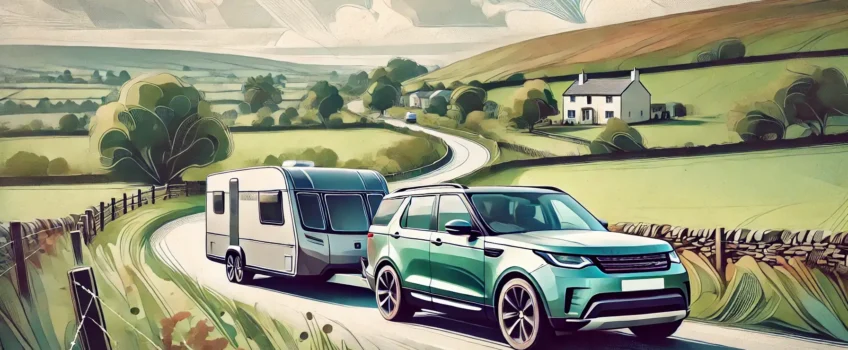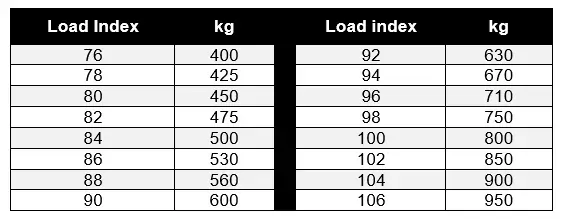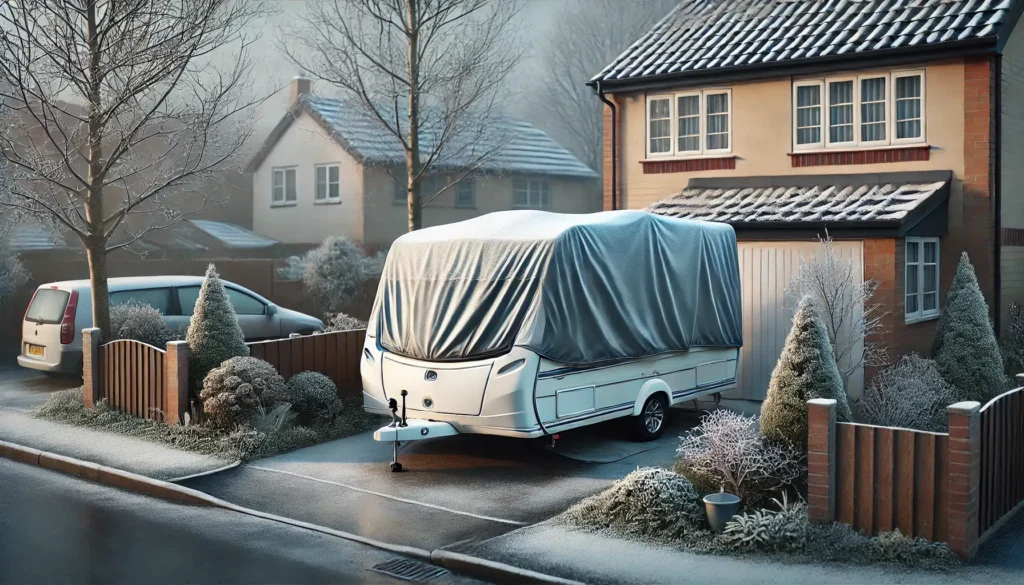
Caravan Tyres: Essential Tips for Over-Wintering and Safe Storage
Taking good care of your caravan tyres, especially during over-wintering months, is essential to ensure safety, performance, and longevity. When preparing for your next caravanning holiday, the last thing you want is to be stranded on the side of the road due to tyre issues. In this guide, we’ll explore everything you need to know about caravan tyres, including tyre pressure management, tread checks, load limits, and expert advice from Elite Garages to make sure your home on wheels is road-ready.
Why Caravan Tyre Maintenance Matters
Caravan tyres are the unsung heroes of a safe and enjoyable trip, supporting the weight of the caravan and providing essential stability. Given the specific demands of caravan use, tyres should be properly maintained whether your caravan is used every weekend or stored over winter.
Before setting off on your holiday, make sure your tyres are in peak condition. At Elite Garages, our skilled technicians can check your tyres at any of our branches in the South and South East of England. From tread depth to tyre pressure, our team ensures your caravan tyres are good to go. We offer a free tyre check and, if needed, a selection of affordable, quality caravan tyres or motorhome tyres.
Related: Should I Choose Winter Tyres or All-Season Tyres?
Understanding Caravan Tyre Pressure and Load Ratings
Keeping an eye on tyre pressure is key to preventing blowouts and ensuring optimal handling. Every caravan tyre has a maximum inflation PSI rating displayed on its sidewall. For example, a common tyre specification might read 185 R14C 102/100 with a maximum inflation pressure of 64 PSI. This means each tyre can safely handle a load of 750 kg under ideal conditions. However, it’s generally advised to avoid exceeding 90% of the tyre’s load capacity, which brings the recommended maximum to 675 kg per tyre.
The table below offers additional insight into load index ratings for caravan tyres. For example, a load index of 102 supports 850 kg, while 100 supports 800 kg. Ensuring your tyres meet these load requirements can prevent unnecessary wear and dangerous overloading.

Ensure you do not exceed 90% of the load capacity for safe and efficient travels.
Over-Wintering: Preparing Your Caravan for Winter Storage
Over-wintering refers to the process of preparing your caravan for winter storage. Proper caravan storage not only keeps your caravan in good condition but also extends the life of your tyres. Here’s what you need to know to protect your tyres and caravan.
1. Adjusting Tyre Pressure for Storage
For over-wintering, it’s recommended to inflate tyres slightly above their normal pressure to prevent flat spots. However, avoid over-inflating, as this could damage the tyres. For best results, check the pressure every few weeks if the caravan is accessible. Elite Garages offers tyre checks to help you determine the optimal pressure for your specific tyres.
2. Rotating or Removing Tyres During Storage
Tyre rotation can be beneficial before storage to ensure even wear. However, for extended storage periods, it’s ideal to remove the tyres and store them in a cool, dry place to prevent flat-spotting. If you leave the tyres on, consider placing the caravan on jack stands to reduce the pressure on the tyres and keep them in good shape.
3. Thorough Tyre Checks Before Storage
Perform a detailed inspection before storage to catch any early signs of wear, such as cracks, bulges, or reduced tread depth. In the UK, the legal minimum tread depth is 1.6 mm, though experts suggest replacing tyres at 3 mm for optimal grip, especially in wet conditions. You can measure tread depth yourself using a gauge, wear indicators, or the 20p coin test. For a professional check, visit an Elite Garages branch, where technicians can assess and advise on necessary replacements.
Caravan Storage: Protecting Your Caravan Tyres and Structure
When it comes to caravan storage, the environment plays a huge role in preserving the condition of your tyres and overall caravan. Here are some essential tips:
Covering Tyres to Protect from UV Rays
Even in winter, UV rays can cause tyre degradation. Using tyre covers is a simple yet effective way to shield your caravan tyres from sunlight and prevent premature ageing. If possible, store your caravan in a shaded area or a covered storage facility for added protection.
Clean and Cover the Caravan
Before storing your caravan, thoroughly wash the exterior and apply a protective wax to prevent corrosion. Cover the caravan with a breathable, water-resistant cover that prevents moisture build-up while keeping the elements at bay. This is especially important for over-wintering, as it helps preserve the exterior finish and prevents rust.
Drain Water Systems and Secure the Interior
Winterise your caravan’s water systems to prevent frozen pipes, and secure loose interior items. Draining water tanks and ensuring all systems are empty reduces the risk of damage from cold temperatures.
Can You Tow a Caravan with an Electric Car?
Yes, you can tow a caravan with an electric car, but several important factors must be considered. First, ensure that the electric vehicle (EV) is equipped with a compatible tow bar, which typically needs to be fitted by a specialist garage. Additionally, the size and weight of the caravan must fall within the manufacturer’s recommended limits for the specific EV model you’re using.
Battery range is another critical factor, as towing increases energy consumption. Make sure your EV has sufficient range to accommodate the extra load. Lastly, verify with your insurance provider that they cover towing a caravan with an electric car, as some policies may have restrictions.
Remember, when towing a caravan with an electric vehicle, the condition and load capacity of caravan tyres play a critical role in ensuring safety and performance on the road. If you’re looking for the best EV tyres for your car, take a moment to read this informative EV tyre buying guide.
Regenerative Braking and Towing
Some EVs have regenerative braking systems that can recharge the battery while on the move, though not all are calibrated to handle the additional load. It’s worth checking with the manufacturer to see if regenerative braking can be safely used while towing.
Challenges with Towing Using Electric Vehicles
Currently, many EVs are not approved for towing due to a process known as “type approval” (or homologation), which verifies that production vehicles meet specified safety and performance standards. The additional weight of towing puts more strain on the vehicle’s braking and motor system, which can affect both performance and safety. Towing a caravan not only impacts battery range but also places extra demands on caravan tyres due to the increased load.
Key limitations include:
- Towing with an EV increases the vehicle’s already substantial weight compared to petrol or diesel cars, which may negatively impact braking performance.
- Towing a caravan significantly affects an EV’s range, as it requires more energy to pull the additional weight. Most EVs experience a 25-30% range reduction when towing a lightweight trailer, which can increase up to 50% for heavier loads.
- Many EVs’ regenerative braking systems are not designed to account for the added weight of a towed load, potentially leading to reduced efficiency or even safety concerns.
Electric Car Towing Capacity vs. Petrol and Diesel Vehicles
Compared to petrol or diesel cars, towing with an EV requires careful planning to avoid excessive wear on caravan tyres and to manage energy consumption effectively.
Diesel cars have traditionally been preferred for towing due to their high torque output, although turbocharged petrol engines are closing the gap. In comparison, most EVs that are approved for towing do so effectively, though their range is reduced. As EV technology evolves, their towing capacities are expected to improve, potentially making them more competitive with traditional petrol and diesel cars.
For hybrids, towing performance varies; many are limited to light loads like small trailers, as towing impacts their fuel efficiency and electric range. However, the advancements in EV technology signal that more models may soon come with increased towing capabilities.
Electric Vehicles with the Best Towing Capacity
Here’s a look at some EVs that currently offer the highest towing limits:
- BMW iX – Towing limit: 2,500 kg
- Genesis Electrified GV70 – Towing limit: 2,500 kg
- Tesla Model X – Towing capacity: 2,268 kg
- Audi E-Tron – Towing capacity: 1,800 kg
- Mercedes EQC – Towing capacity: 1,800 kg
- Volvo XC40 AWD & C40 Recharge AWD – Towing capacity: 1,800 kg
- Kia EV6 & Hyundai Ioniq 5 – Towing capacity: 1,600 kg
- Tesla Model Y – Towing capacity: 1,600 kg
- Polestar 2 – Towing capacity: 1,500 kg
Some smaller models, like the Nissan LEAF, have a lower capacity, such as 680 kg for a braked trailer, but can still tow lighter loads. These EVs have been designed to handle towing loads, making them suitable for caravans with the appropriate caravan tyres.
Recommended: How Does Towing Affect EV Range?
Why Choose Elite Garages for Caravan Tyres and Services?
Elite Garages has over 50 years of industry experience, making us a trusted choice for caravan tyres, tyre checks, MOTs, and more. Whether you’re preparing for a trip or need assistance with over-wintering, our expert team is here to help. Visit one of our branches in the South East to benefit from free tyre checks, affordable high-quality tyres, and professional guidance on caravan storage.
What Services Are Available at Elite Garages?
- Free Tyre Safety Checks: We offer free checks to evaluate tyre pressure, tread depth, and any visible damage.
- Wide Range of Tyres: Our extensive stock includes durable caravan tyres from top manufacturers.
- Wheel Balancing: Ensure a smooth ride and even tyre wear with our professional wheel balancing service.
Final Thoughts on Over-Wintering and Caravan Tyres
Before you head off on your next adventure, it’s essential to give your caravan tyres the attention they deserve. Proper care for caravan tyres and preparation for over-wintering are essential for safe, stress-free travel. From tyre pressure management to protecting against UV rays, these maintenance tips will help your caravan tyres last longer and perform better.
For high-quality caravan tyres, expert advice, and a wide range of tyre services, visit your local Elite Garages branch. With over five decades of experience, we’re dedicated to ensuring that your caravan is in top condition, giving you peace of mind wherever the road may lead. Our friendly team has extensive knowledge of all types of vehicles and can assist you in making informed decisions about your caravan tyres, ensuring a safe and enjoyable journey every time.
FAQs: Caravan Tyres
To prepare caravan tyres for over-wintering, check and slightly overinflate them to prevent flat spots, rotate or remove the tyres if storing long-term, and perform a thorough inspection for damage or low tread. Covering tyres to protect them from UV exposure and storing the caravan in a cool, dry place also helps extend tyre life.
It’s recommended to check caravan tyre pressure before every trip and at regular intervals during winter storage, especially if the caravan is accessible. Over-wintering conditions can cause temperature changes that impact tyre pressure, so checking monthly is ideal. Proper inflation helps prevent flat spots and ensures safety on the road.
Yes, you can tow a caravan with certain electric vehicles, but there are key factors to consider, including the towing capacity of the EV, the weight of the caravan, and the condition of your caravan tyres. Not all EVs are rated for towing, so check with your manufacturer. Additionally, towing affects battery range, often reducing it by 25-50%, so plan accordingly.
Like car tyres, the legal minimum tread depth for caravan tyres in the UK is 1.6mm, though experts recommend replacing tyres when tread depth reaches 3mm, especially for safety in wet conditions. You can check tread depth using a tread depth gauge, wear indicators, or the 20p coin method.
About Us
Opening Times
Saturday : 8:30–4:00
Sunday : closed
More Information
Contact UsCustomer Information Pack
Check MOT Due Date
Free MOT reminder
Careers



